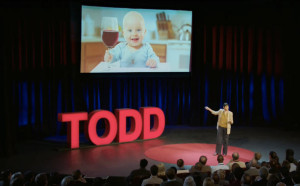Most eat-this-don’t-eat-that studies are garbage, in the way that garbage could become a Dr. Oz endorsed superfood with a scientific study designed to generate the desired answer.
“There are so many studies being thrown around, they can seem to contradict one another,” Oliver said on his HBO show Last Week Tonight Sunday. “In just the last few months, we’ve seen studies about coffee that claim it may reverse the effects of liver damage, help prevent colon cancer, decrease the risk of endometrial cancer, and increase the risk of miscarriage.”
Take, for example, everything you’ve heard about America’s morning beverage of choice. “Coffee today is like God in the Old Testament,” he quipped. “It will either save you or kill you depending on how much you believe in its magic powers.”
The reason for all the confusing findings? According to Oliver, “Scientists are under constant pressure to publish, with tenure and funding on the line. And to get published, it helps to have results that seem new and striking. Scientists know nobody is publishing a study that says, ‘Nothing Up With Acai Berries.’ And to get those results, there are all sorts of ways that — consciously or not — you can tweak your study.”
Per usual, Oliver has an amusing solution to the problem: Scientists’ sourcing and methodology should be explained when their results are shared everywhere from viral stories to news segments. “I know what you’re thinking: ‘Hold on, if that happens, where where am I going to get all my interesting bulls— from?” says Oliver. “Don’t worry — we have you covered.’”
That’s where his idea for Todd Talks comes in. “Do you love science in all its complexity but wish it could be a little less complex and a lot less scientific?” asks an announcer. “Introducing Todd Talks, where the format of Ted Talks meets the intellectual rigor of morning news shows.”
Highlights of the hilarious talks include warnings about chocolate — “Mmm. It will kill you,” says one pseudo scientist — and some intriguing if not alarming findings on alcohol — “And in my research I found out, red wine makes babies 20 percent more sociable,” explains another.

